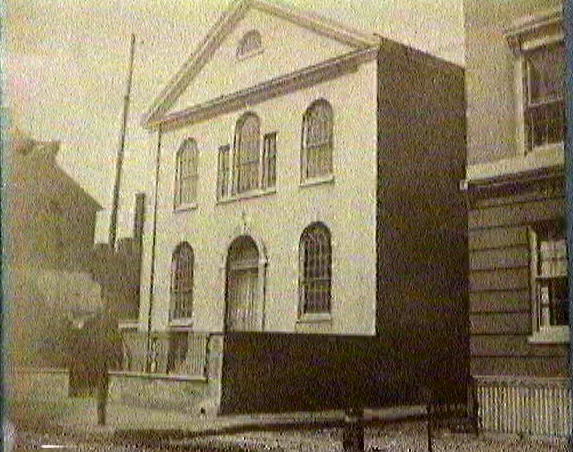St. Thomas African Episcopal Church (1792) Philadelphia, PA.

 ST. THOMAS AFRICAN EPISCOPAL CHURCH (1792) PHILADELPHIA, PENN. (c. LAWRENCE E. WALKER FOUNDATION)
ST. THOMAS AFRICAN EPISCOPAL CHURCH (1792) PHILADELPHIA, PENN. (c. LAWRENCE E. WALKER FOUNDATION)
St. Thomas African Episcopal Church was organized in 1792 as an outgrowth of the Free African Society, established in 1787 by Absalom Jones, Richard Allen and others to assist the Black population in Philadelphia. The early religious services were held in private homes and a school. Within the congregation were many who, because of growing racial tension and insults, had followed the lay preachers Absalsom Jones and Richard Allen in an historic walkout from St. George’s Methodist Church. Affiliation with the Episcopal Church was ratified in 1794. Under the ministry of Reverend Absalom Jones (1746-1818), became the first Episcopal priest of African-American descent and the first rector of St. Thomas. (For more about Absalom Jones and Richard Allen, see Slavery in Pennsylvania.)
The original church house constructed at 5th and Adelphi streets in Philadelphia, included 12th Street below Walnut, 57th and Pearl streets, uniting with the Church of the Beloved Disciple, 52nd and Parrish streets and the current location; Overbrook and Lancaster avenues (formerly St. Paul’s Overbrook) in Philadelphia’s historic Overbrook Farms neighborhood. The congregation has continued to be predominately African American. The active number of communicants today (as of 2003) is approximately 1,000. The parish’s Eucharist-centered liturgy has evolved over the years from a traditional Anglican/Episcopal high church worship experience to one that is enriched with an evangelical Afrocentric focus. The founders and St. Thomas’s clergy and parishioners played key roles in the Abolition/Anti-Slavery/Underground Railroad movement and the early equal right movement of the 1800s.

